Amber Waves of Local Grain
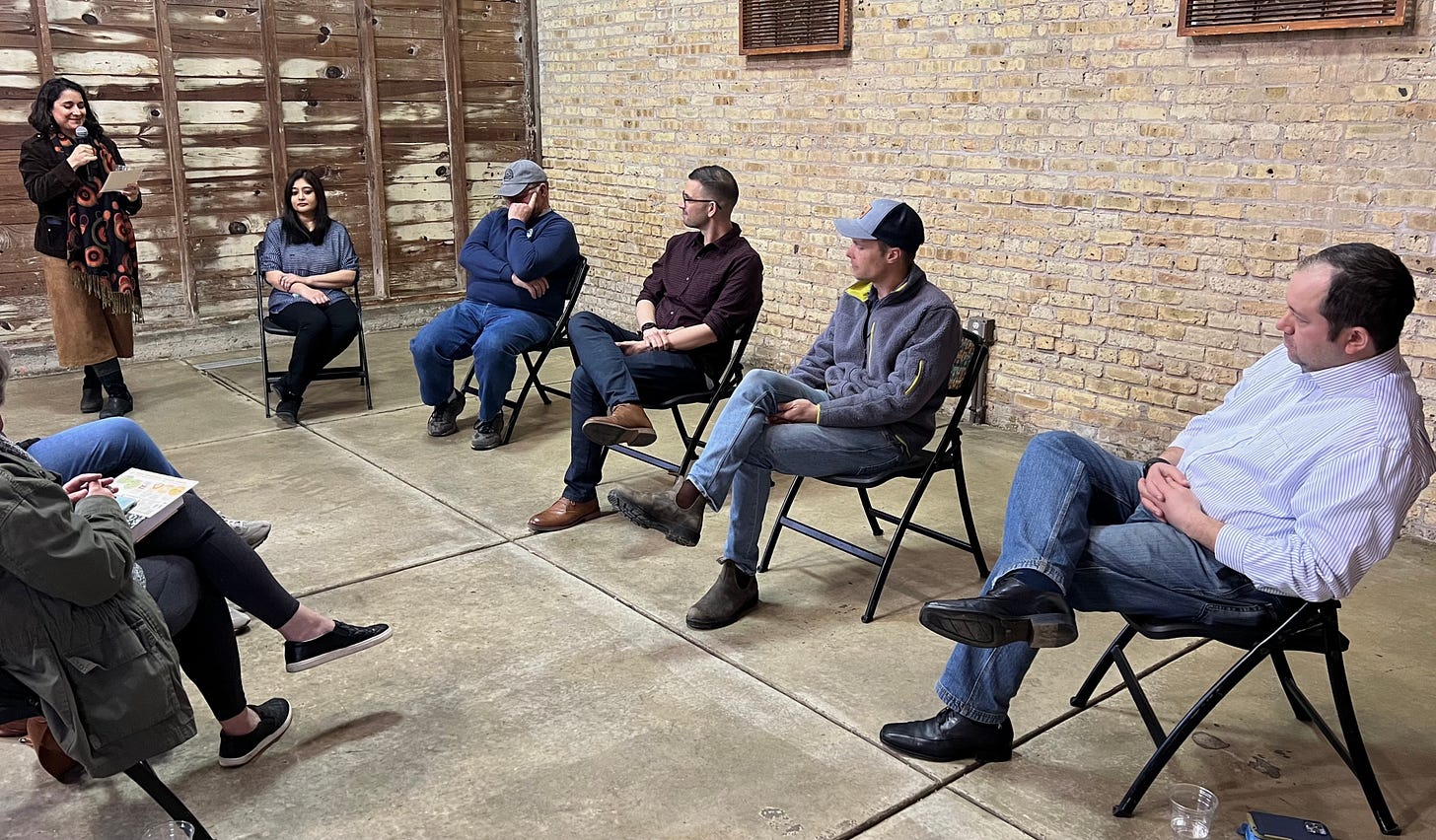
The rise of a local, sustainable grain movement in Illinois and surrounding Midwest states is one of the most important developments in efforts to build a better food system. This was the topic of Grain Culture, a panel discussion held May 5 at Elawa Farm Foundation in Lake Forest, Illinois.
The panel — moderated on behalf of the Artisan Grain Collaborative by Elena Gutierrez Byrne of the Renewing the Countryside organization — included two grain growers and three product makers who source their grain locally. And while there was much discussion of issues specific to grain, the panelists spoke to universal truths of the importance of a strong local food community — something that was driven home to many people by pandemic-related supply chain failures in the conventional food system.
Here are takeaways from each of the speakers.
Wesley Reith, Operations Manager, Granor Farm, Three Oaks, Michigan
“For many decades, federal agriculture across the United States has only really served this idea of specialization and efficiency, like we need the most efficient and cheap food system we can possibly have. And part of that is specialization. So you have the producers doing one thing, and they do it really well. And then something like the pandemic happens, it really throws a big wrench in that whole system. And suddenly this very efficient, very specialized, very technology-driven system fails to really do what it is designed to do, which is get food in people's mouths. I mean, that was a hard way to learn that lesson and I don't wish that on anyone. But I think it showed us the power of the regional grain chain, the local economies…”
“I think this idea of taking it back to the local supply chain is really powerful. Because we get to understand it, right? We get to know something a lot more intimately. And whether that's from a consumer to a farmer, or a farmer to end user doesn't really matter. I think [author] Wendell Berry has this idea where in order to love something, you have to know it. And so knowledge comes with being close to something and on a local level or regional level, that's where the knowledge comes from.“
Harold Wilken, Owner, Janie’s Farm, Danforth, Illinois, and Janie’s Mill, Ashkum, Illinois
“My son, my nephew, never farmed conventionally. I have, I didn't want to handle any pesticides or herbicides. And so Janie’s Farm will never go back to conventional…. If the first thing the guy tells me is he's in organics for the money, we're done. It's all about how they take care of soil. It's all about how they feel about their grain. And do they want to feed people. Or do they just want to make money?”
Aaron Harris, Owner/Founder, Molino Tortilleria, Chicago (formerly Sawyer, Michigan)
“I think that we try to support as much local produce as we can. Knowing our farmers, knowing people, having friends that grow things, it just makes you think. You go to the grocery store to buy that bag of lettuce or whatever, you're like, ‘I could just wait and Wednesday when the farmers market is open pick up something there.’… I think it's just really understanding that when the big food system failed us all, the local food system was there to bail us out. And I hope that that is something that sticks with us and something that we kind of pass on.”
“So we sell tortillas right now for about $8 investment, right? And that is pretty astronomical, if you look on the shelves in your grocery store somewhere. And so education is a big part of what we do, and telling our story is a really, really big part of what we do. Because if you just see tortillas next to each other, you're gonna be like, ‘Well, why would I ever do that?’ But we have to go the extra mile to really explain to the consumer market in the correct way to tell where it's coming from.”
Arshiya Farheen, Chef/Owner, Verzênay Patisserie, Chicago
“My goal is to be a part of grain and I want to make it less intimidating. I feel that sometimes when things are not as popular, then people tend to feel intimidated about it. So eventually I want to make stuff that feels like ‘Oh, I can make it at home. I can do this and this is very common.’ And not have people be like, ‘Oh my God, this is like a strange thing. I can outsource it or I don't know how to do this or where do I get this from.’ So I want to be able to resolve that and bring it forward to consumers so it feels more friendly, so everybody thinks it's an approachable thing to do.”
Jesse Zien, Chief Operating Officer, Two Eagles Distillery, Mount Prospect, Illinois
“We wanted to keep everything local. We're focusing on where we source from. And we've learned a lot about just where grains come from, which we didn't before we started on this.”
“I think it's my responsibility as head of a consumer distiller to showcase what's grown here. Because Bloody Butcher [a variety of red corn] here is different than Bloody Butcher out in New York. What's grown in the Midwest and in this local area is going to have a unique profile to it, and that we need to make sure that we're taking that and we're celebrating it and we're marketing that and bringing it to that end consumer.”
The event was introduced by Laura Calvert, executive director of Elawa Farm Foundation, and Steve LoTempio, the Foundation’s resident chef, who prepared three grain-based dishes that were served to attendees.
Abra Berens, executive chef at Granor Farm in Three Oaks, Michigan, delivered opening remarks. Abra, a colleague of panelist Wesley Reith, is author of Grist, a book on how to cook grains, beans and legumes that was published last year.
Elena Gutierrez Byrne, who moderated the panel, is communications manager for the Artisan Grain Collaborative and local foods specialist for Renewing the Countryside, a non-profit based in Minneapolis.
Andersonville Market Opens
Well, I can’t be everywhere, so thanks to Shawn Wilson, a close friend and local crime-fiction author, who shared these photos of Wednesday’s season opener at Andersonville Farmers Market in Chicago.
Please visualize your farmers market photos on Local Food Forum. Operators are standing by at bob@localfoodforum.com.






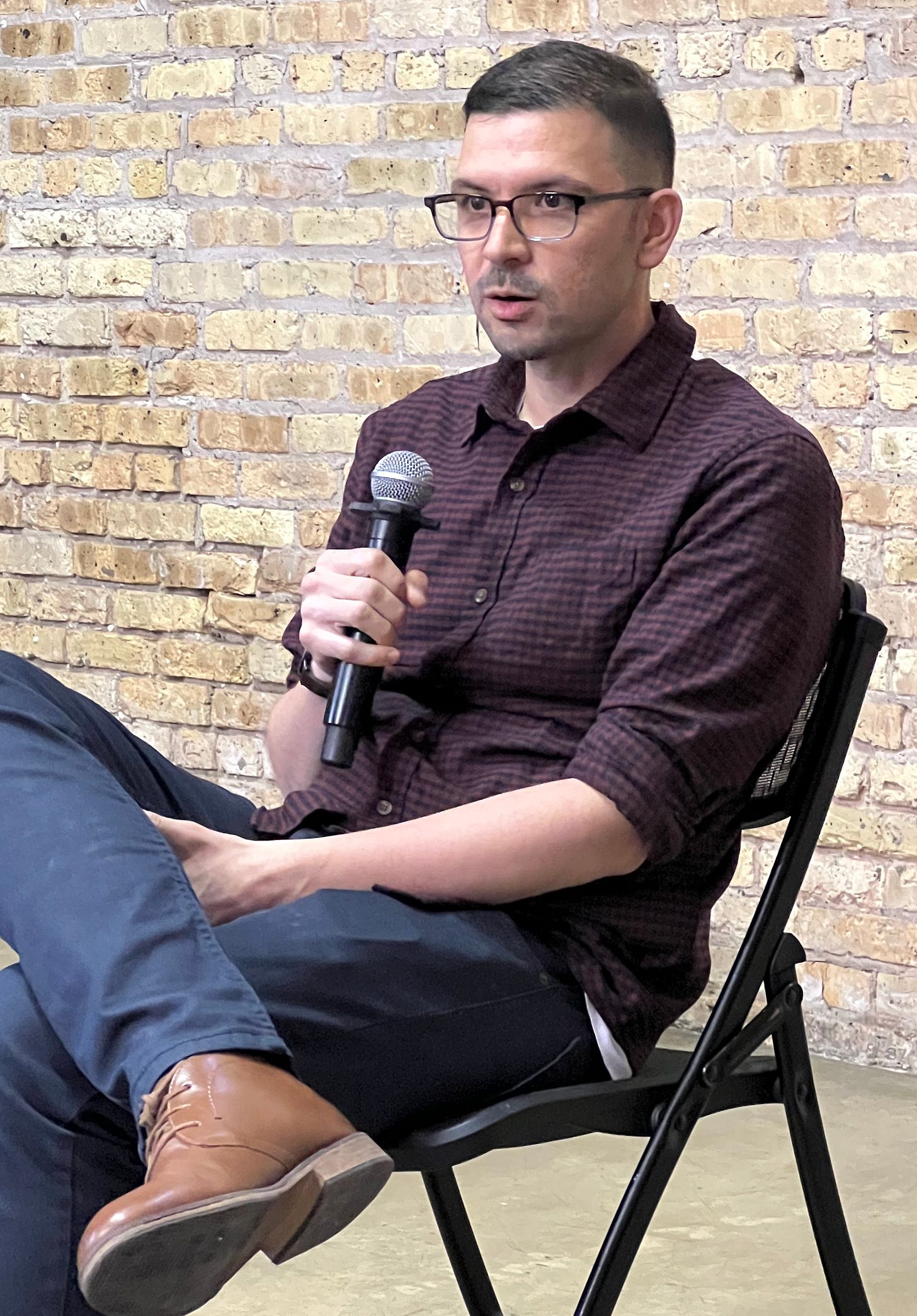


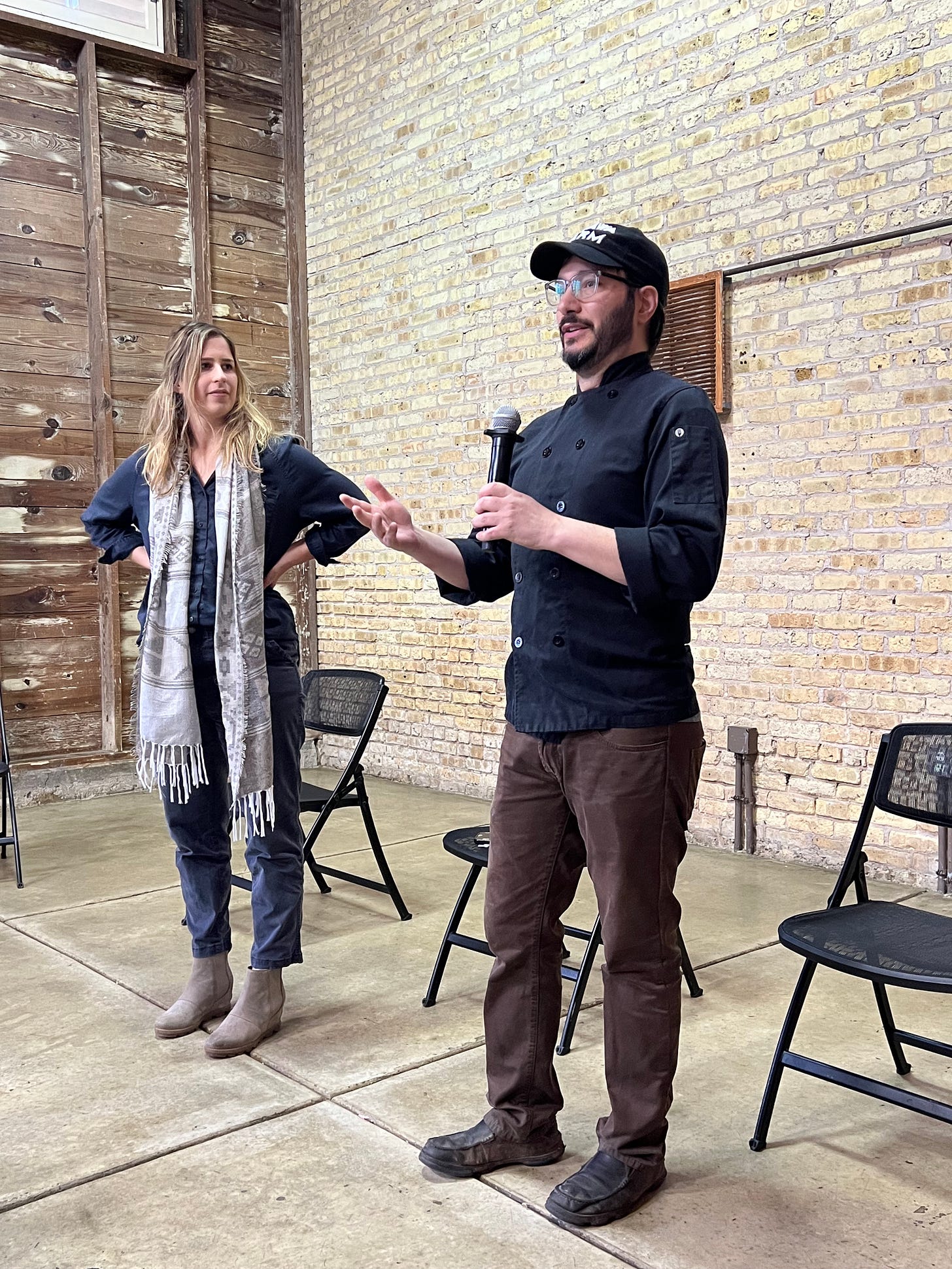




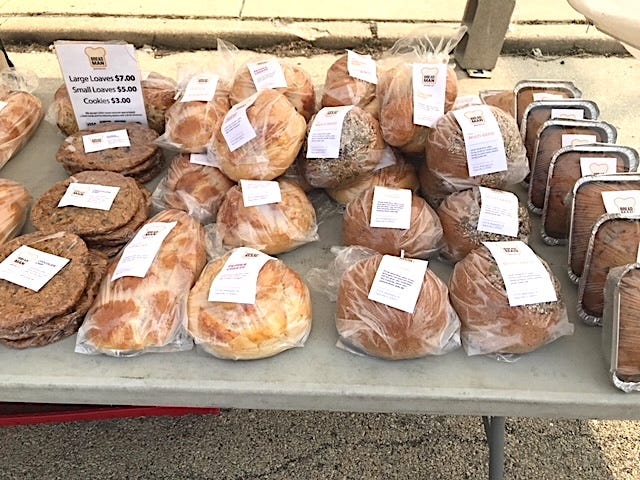
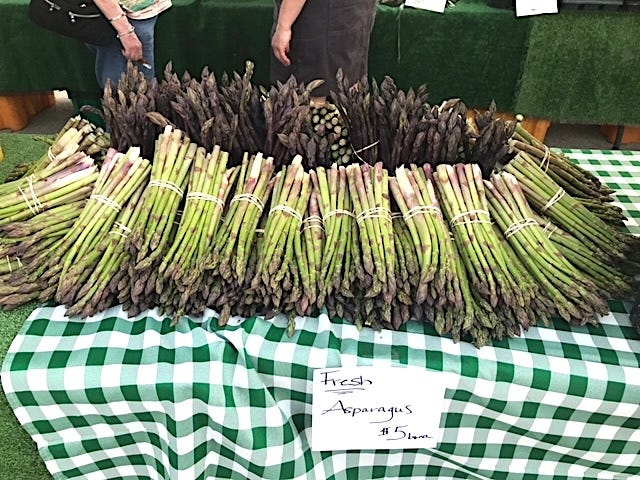
Love regional regenerative grains and Loved this issue!!